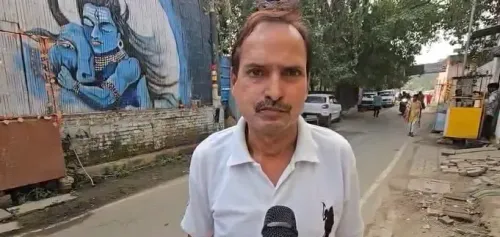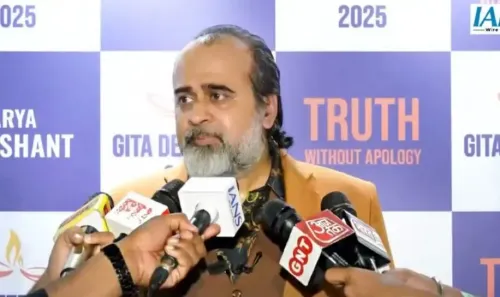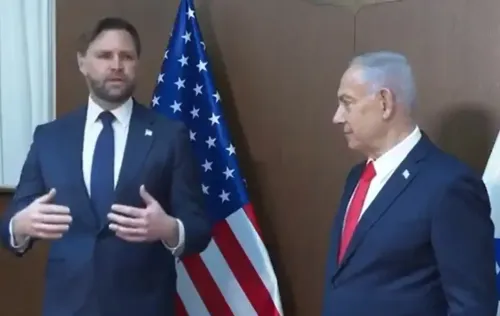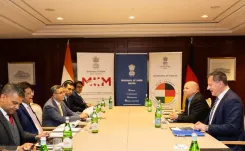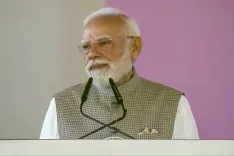How is Tripura CM tackling illegal Rohingya and Bangladeshi migrants?
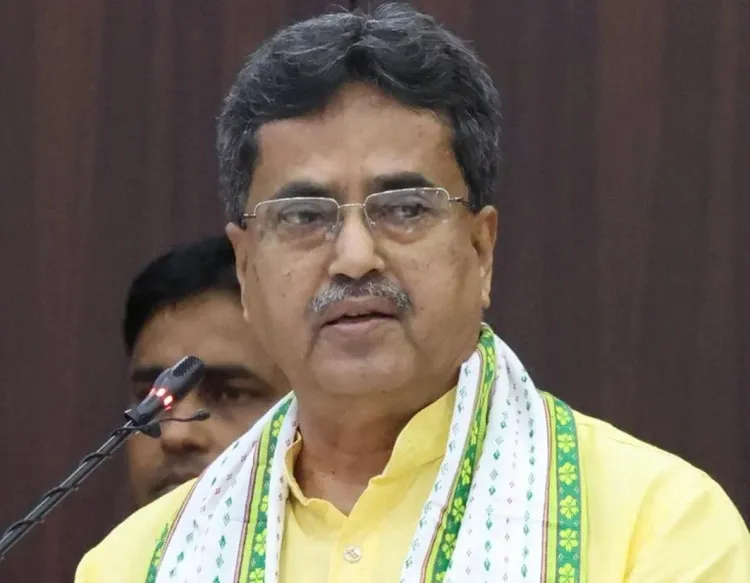
Synopsis
Key Takeaways
- Task forces established to combat illegal immigration in Tripura.
- Focus on identifying and deporting Rohingyas and Bangladeshi nationals.
- Enforcement of Citizenship (Amendment) Act to aid specific religious minorities.
- Increased border security measures implemented in response to unrest.
- Importance of maintaining a balance between security and humanitarian concerns.
Agartala, July 20 (NationPress) Tripura's Chief Minister Manik Saha announced on Sunday that the state has established task forces aimed at identifying and deporting illegal immigrants, with a focus on Rohingyas and Bangladeshi nationals residing unlawfully in the region.
During a visit to different areas of the capital to address local concerns, the Chief Minister stated that these district-level task forces would be responsible for detecting illegal migrants and initiating appropriate actions.
According to the Citizenship (Amendment) Act, individuals belonging to Hindus, Sikhs, Jains, Buddhists, Parsis, and Christians who arrived in India from Bangladesh, Pakistan, and Afghanistan before December 31, 2014, are permitted to remain in the country.
“The task forces will identify foreign nationals and verify their arrival in Tripura. They will also investigate whether individuals have entered Tripura recently, particularly following the unrest in Bangladesh last year,” Saha, who oversees the Home portfolio, informed the media.
On March 11, 2024, the Centre issued the Citizenship (Amendment) Rules 2024, facilitating the enforcement of the CAA, which aims to provide Indian citizenship to persecuted Hindus, Sikhs, Jains, Buddhists, Parsis, and Christians who arrived from Bangladesh, Pakistan, and Afghanistan before December 31, 2014.
The Chief Minister earlier remarked that infiltrators from Bangladesh have recognized that Tripura is unsafe for them, asserting that all security agencies are on high alert to prevent any infiltration into India.
“Following the unrest in Bangladesh last year, security forces have maintained strict surveillance along the border to deter any infiltration attempts,” Saha stated.
Recently, the Chief Minister convened meetings with senior officials from various security agencies, including the BSF, urging them to maintain close coordination to address border-related issues.
Tripura shares an 856 km border with Bangladesh, encircled on three sides by the neighboring nation, which renders the northeastern state particularly vulnerable and sensitive to cross-border migration challenges and related crimes.
Aside from a few areas, most of the border has been fenced to hinder smuggling, trans-border crimes, and illegal crossings by infiltrators and hostile elements.

